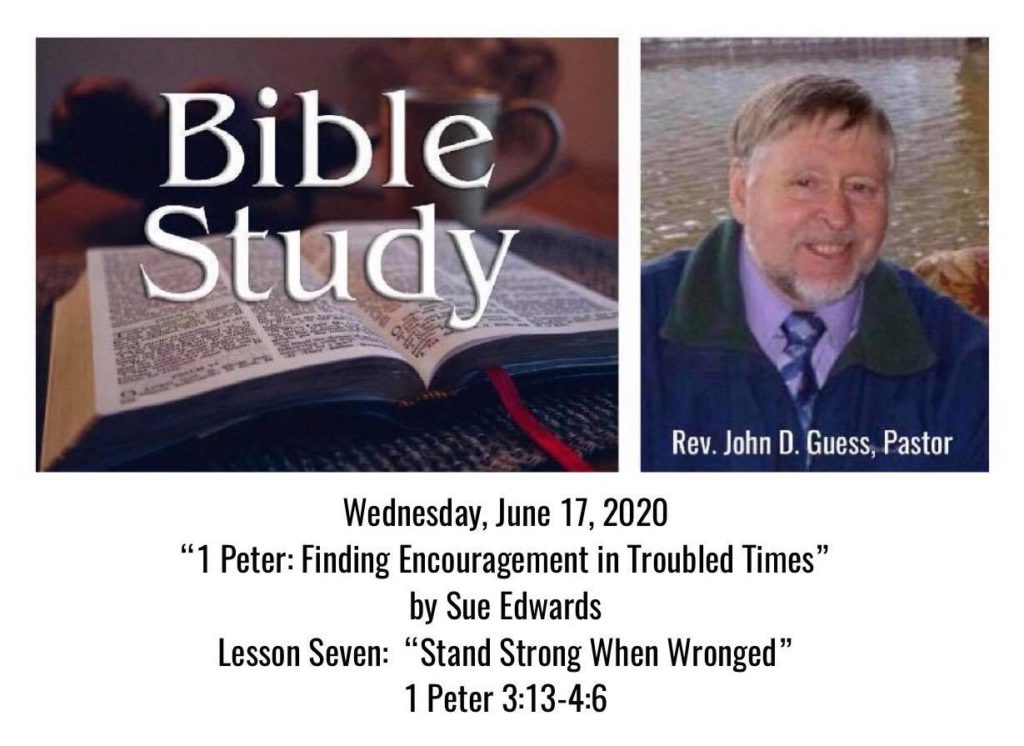- Sue Edwards
Scripture Lesson:1 Peter 3:13-4:6
In 1 Peter 3:13, Peter asks, “Who will harm you if you prove zealous for good.”
How do people respond when you treat them well? Think of examples.
Peter opens verse 14 with, “But even if”...the Greek expresses that it’s unlikely. What does Peter say is the ultimate outcome?
In Luke 12:4-7, who does Luke say we should ultimately fear?
LORDSHIP ISSUES
In 1 Peter 3:15a, Peter says to sanctify Christ in your hearts.
Examine what it means to sanctify, or “set apart”, Christ in your life.
Consider what it might be like to handle times of trials and troubles if you didn’t have Jesus “set apart” in your life.
EFFECTIVE WITNESSING
1 Peter 3:15b says that believers should make a defense and give account to anyone who asks about our faith. This is the Christian discipline of apologetics.
According to Peter, how are we to respond when asked, or challenged, about our faith?
As believers, do we sometimes separate our lives into segments, i.e. at church, at work, at home, with friends. Why is it hard? How do we go about integrating our spiritual life into all aspects of life?
According to verse 15, who initiates the conversation? What is the significance?
What is a nonbeliever looking to find? How can our response with gentleness and reverence make a difference? How can we be prepared when this opportunity to share occurs?
Verse 16 instructs us to keep a good conscience, even when slandered. What will be the ultimate outcome?
HOW TO KEEP A CLEAR CONSCIENCE
1 Peter 4:1-2 uses the sufferings of Jesus as our example; look further at Philippians 2:5-11 and discover how we follow Christ’s example.
If we accept Jesus as our Savior, but fail to make Him Lord of our lives, what difficulties can arise, according to 1 Peter 4:3?
According to verse 4, how do nonbelievers react to friends becoming a Christian? Think about the difficulties of continuing to interact with non-Christian friends in certain situations.
According to 1 Peter 4:5, what will happen on judgement day? In light of this, how do we share our faith and attempt to lead others to Christ?
Thank you for joining in this study. Please let me know if you have any questions.
